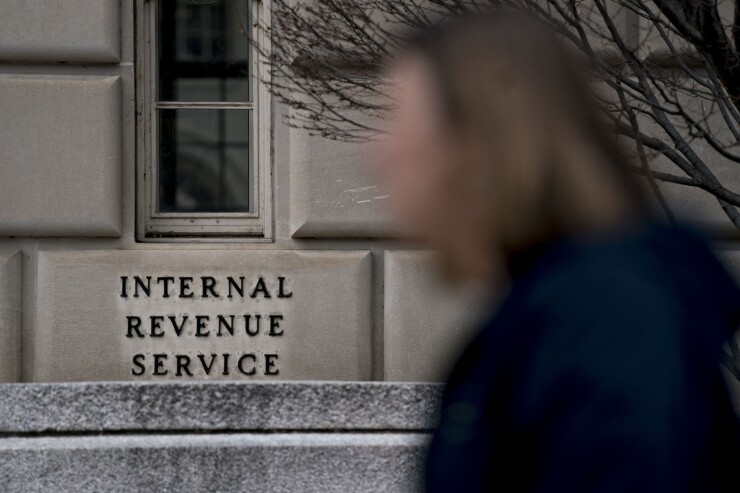IRS whistleblower awards plunge

The Internal Revenue Service gave out far less money last year to tax whistleblowers than in recent years and collected much less as well, according to a new report.
The fiscal year 2021 report released Friday by the IRS Whistleblower Office, found that in the fiscal year ending Sept. 30, 2021, the Whistleblower Office made 179 award payments to whistleblowers totaling $36 million, while the proceeds collected were $245 million, including $22 million collected for criminal fines, civil forfeitures and violations of reporting requirements.
The IRS hailed progress on some fronts: “Whistleblower claim numbers assigned in FY 2021 grew by 55% year over year, the second highest level of new claim numbers in the history of the program and claim closures also increased by 13%,” wrote John Hinman, director of the IRS Whistleblower Office, in the introduction to the report.
However, an attorney who has long experience representing tax whistleblowers sees a falloff in recent years. “Today’s report on the IRS whistleblower program is dispiriting — with the numbers of dollars collected thanks to the program falling to $245 million — down from $1.44 billion just three years ago,” said Dean Zerbe, a partner at the Houston-based law firm Zerbe, Miller, Fingeret, Frank & Jadav, in an emailed statement. “Awards to whistleblowers have dropped to $34.5 million — almost a tenth of where the program was in 2018. There is not enough lipstick in the world to make these numbers pretty.”

Andrew Harrer/Bloomberg
He compared the amounts to whistleblower award programs at other federal agencies like the Commodity Futures Trading Commission and the Federal Trade Commission. “By comparison, the tiny CFTC whistleblower award program has made over $211 million in awards to whistleblowers in the last 12 months,” Zerbe wrote. “The SEC award program made $564 million in awards last year. These are agencies that have fully embraced a whistleblower program and have a culture of making awards to whistleblowers — which is the key to encouraging more whistleblowers to come forward.”
He acknowledged some positive developments in the latest annual report. “The small sliver of good news in the report is the statement that the whistleblower office is making awards in a timely manner once proceeds have been collected and that there has been some progress in providing for partial awards — allowing for disaggregation of awards,” said Zerbe. “Unfortunately, this is small soup though, compared to the overall troubling picture.”
He believes IRS and Treasury officials need to take a hard look at the program and reform it to allow more awards under a discretionary program for whistleblowers who don’t meet the usual criteria of the mandatory award program. Zerbe recommends the office should contract with whistleblowers and their advisors so the IRS can leverage their knowledge and expertise, and expedite the backlog of cases waiting for action from the IRS counsel’s office and others.
He also wants Congress and the U.S. Tax Court to act. “The whistleblower report makes it clear that it is vital for Congress to take action and pass the bipartisan and bicameral legislation — the IRS Whistleblower Program Improvement Act — to send a clear message of support for the program,” said Zerbe. “One of the reasons that the award numbers have dropped like a stone is that with the Tax Court’s standard of review being ‘arbitrary and capricious’ instead of de novo, there is little concern at the IRS about having to defend and justify a denial of an award in an independent review.”
He praised Hinman’s recent appointment and hopes to see a turnaround. “Mr. Hinman brings years of experience as an IRS employee in examination and audit — most recently in transfer pricing,” said Zerbe. “The hope is that as an IRS insider, Mr. Hinman can advance the ball on a key challenge for the IRS whistleblower program — having the program embraced by examiners and auditors in the field. To his credit, the IRS Commissioner has been supportive of the whistleblower program in terms of personnel — but these disappointing numbers in the annual report show that the Commissioner needs to be personally engaged in ensuring a turnaround of the program.”
Hinman noted in the report that during fiscal year 2021, the Whistleblower Office underwent a major reorganization to better serve whistleblowers and accommodate the growth of the program.


